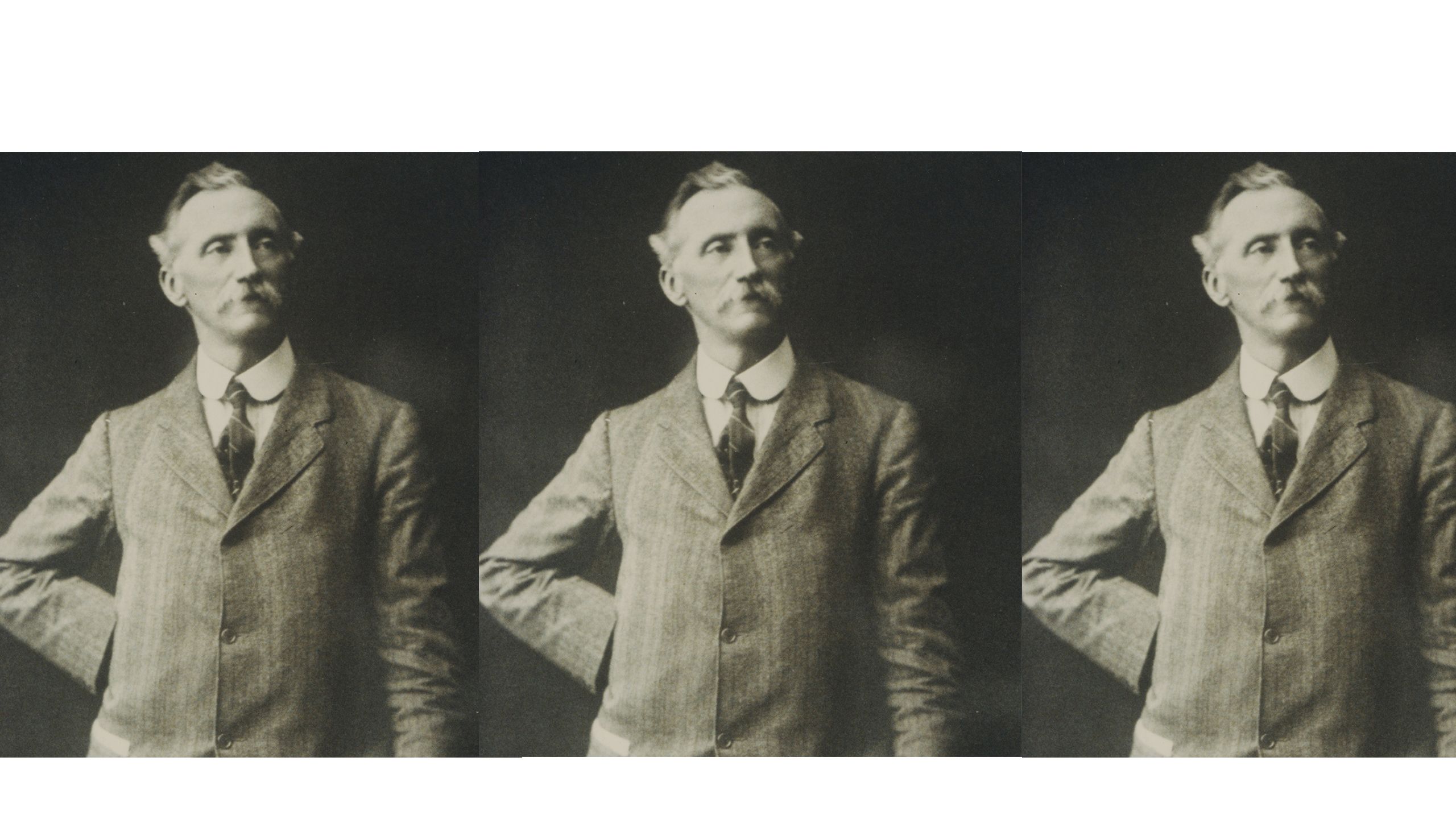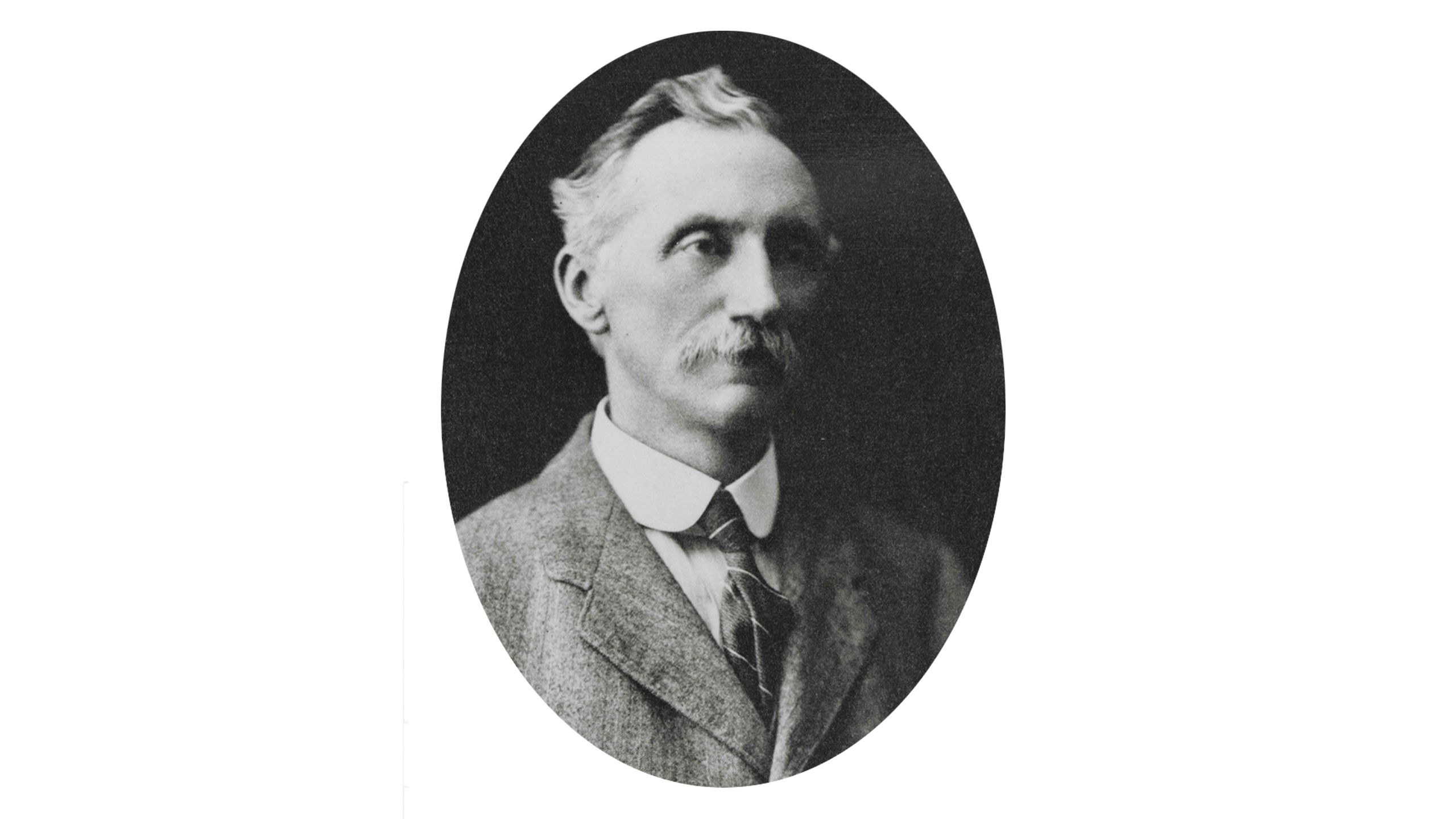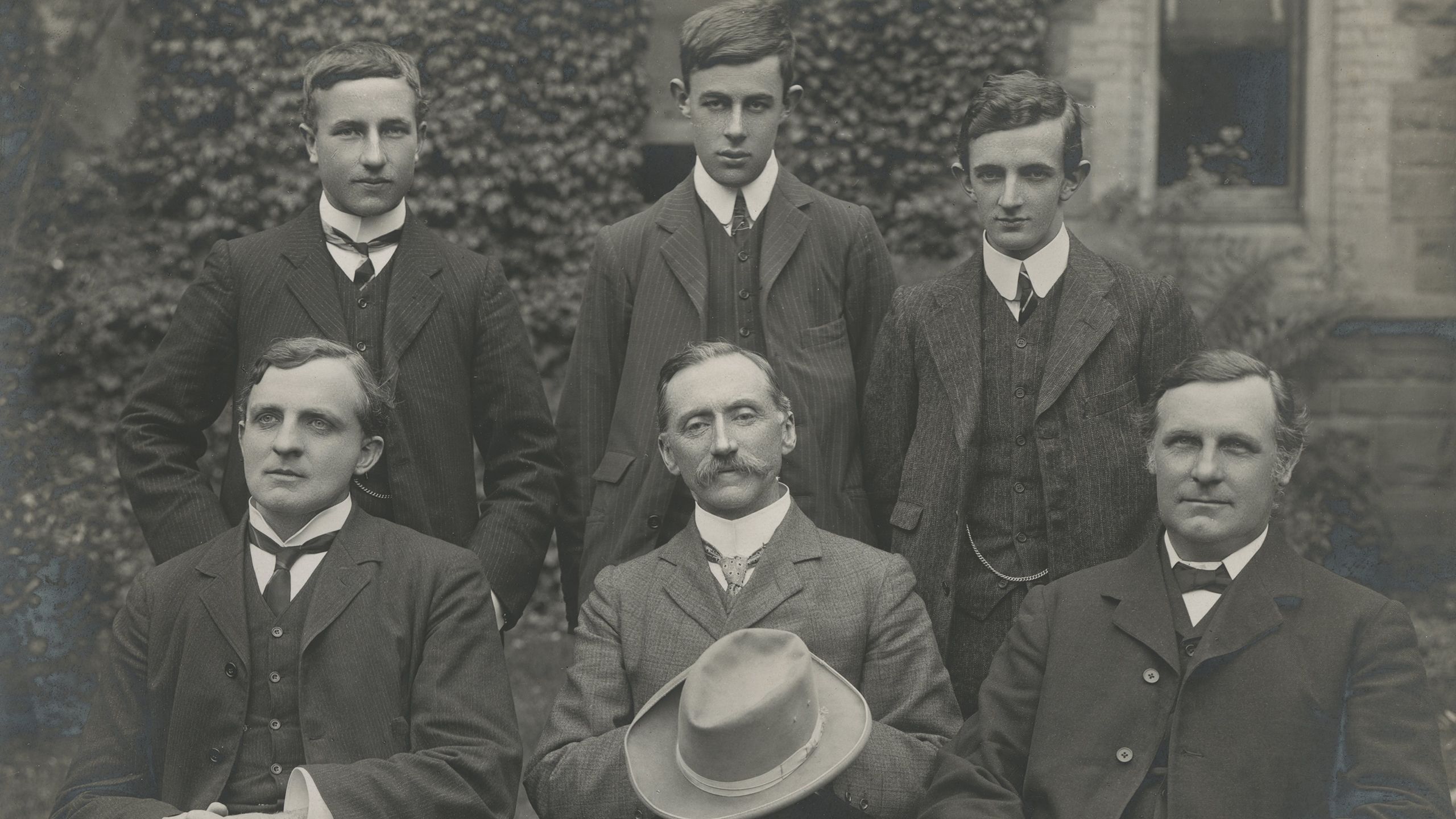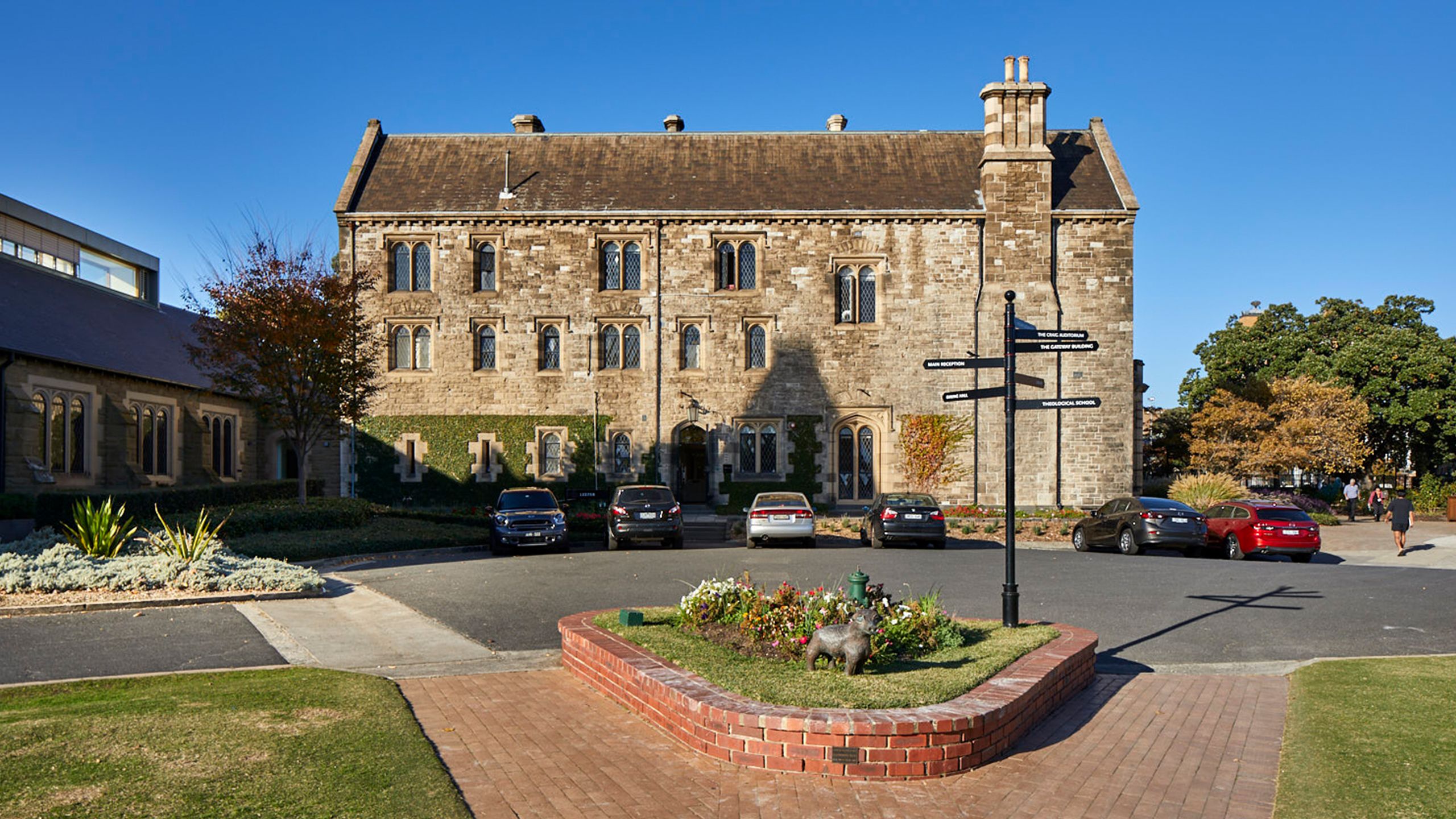The First Warden
Dr Alexander Leeper

Alexander Leeper was Trinity’s first Warden, though, he was known as the ‘principal’ until 1881. After being appointed with an initial three-year term from March 1876, aged just 27, he went on to serve a 42-year tenure, during which his passion for Trinity was palpable. He is credited for the early success of the College and his legacy endures.
Leeper was born in Dublin in 1848 and he went on to study at Trinity College Dublin. He was known to be a brilliant academic (he studied a Bachelor of Arts then a Master of Arts) and was the recipient of a number of prizes and scholarships. He was also actively involved in church life.
When he moved to Australia in 1874 after a period of travelling, Leeper tutored in Sydney then became a teacher at Melbourne Grammar School. He wasn’t particularly taken by secondary teaching, however, and applied to become the Melbourne Chair of Classics in 1872. He was unsuccessful in securing the role, but his name then came up when the Trinity College Council decided it was time to appoint someone with academic distinction to head up the College.
There were some concerns about his age, but Leeper was engaged with the hope that he would help inaugurate a new era for Trinity.
In their early days, Australian university colleges were often slighted as unsuccessful replications of those in Oxford and Cambridge. Trinity’s principal founder, Bishop Perry, did use Cambridge as a model when establishing the new Australian institution, having studied at Cambridge, however, when Leeper took the reigns as Warden, he set out to shape a new kind of college that suited the Australian context and made a positive contribution to the local community.

Leeper oversaw the establishment of the Trinity College Theological School and Trinity’s tutorial system, he outlined rules that students were to respect and follow, he steered the College through some treacherous financial quandaries (stumping up his own money to keep Trinity afloat at times), and championed women’s tertiary education, admitting women as non-residents from 1883 and initiating and overseeing the development of a women’s hostel in 1890.
At the same time, he was dealing with personal challenges, including financially supporting his family in Ireland, battling ill health, dealing with his first wife Adeline’s early death in 1893 (they married in 1879) and becoming the sole carer of their four children, then fathering three more children with his second wife, Mary, whom he married in 1897.
Leeper, bottom centre, with staff and students in 1906

The first book collections of Trinity reflected the classical interests of Leeper, who established a small library in 1876 in what was then known as the Provost’s Lodge. Leeper’s interests were far-reaching, and, alongside his role at Trinity, he was involved with the University Council, Conservatorium of Music, Council of Education, and National Gallery of Victoria.
Above all, Leeper was regarded as a visionary. He pioneered the establishment of a student residence that doubled as a community of scholars and teachers – where academic responsibility lay with both – and a community that understood that systems and policies were necessary to maintain the integrity of the College environment.
Trinity, being the first college of the University of Melbourne, was held up as a model for other colleges in Melbourne and Australia, and, in many respects, Leeper’s vision for the type of institution that Trinity should be continues to this day.
Trinity’s second Warden, Sir John Behan, praised Leeper’s achievements, saying:
He had the academic quality and the largeness of vision, and the audacity of enthusiasm to conceive the possibility of a ‘modern equivalent’ of the ancient English universities, and to put the idea into effect in some real measure.
Leeper handed in his resignation in 1916, however the Council asked him to stay another year, which he agreed to. The Council would have liked for him to stay longer, however Leeper retired for health reasons in February 1918. Nevertheless, after 42 years of service, Leeper had put the wheels in motion for a successful college model that has endured for more than 150 years.
Today, Trinity’s first building proudly holds Leeper’s name.
The Leeper building on Trinity College's main campus






